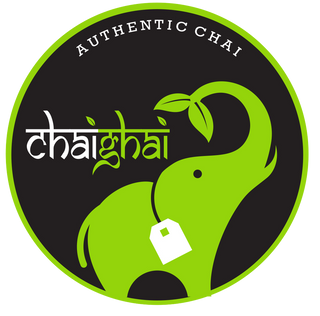“Epic things start with small, humble steps. Pay respect to your beginnings.”
– Vishen Lakhian

Chai is an intrinsic part of Indian culture. From the street corners and countryside’s of India, all the way to the state rooms of Indian parliament, chai has a way of connecting the people of India with its healing powers and delicious taste. It is a social lubricant that has allowed Narendra Modi, India’s current Prime Minister, to understand the people of India better then most from his humble beginnings as a train station chaiwala . He is a man who rose through the ranks of Indian society to occupy its highest position. In India, this is harder to do so then in other places because of the British imposed caste system, which is no longer as prevalent as it was when Modi was growing up. Modi began his career serving chai at a train station, and it was this understanding of the common man and their problems that allowed for Modi to be accepted by the masses. From a young age Modi was instilled with the importance of family, hard work and spirituality. His father would pray at temple every day before attending to his duties at their family’s tea shop. It is these core values that helped propel Modi to India’s premier office and in 2019 be recognized as the world’s most powerful leader by British Herald Magazine. Many important conversations in Indian politics have been accompanied with chai, so much so that part of Modi’s 2014 premiership campaign was based around the concept. Modi has firmly placed his history with chai at the forefront of his politics and stands as a symbol that anyone, no matter their background can achieve their goals and affect the world in a significant way.
'A Little Boy Who Once Sold Tea...': PM Modi Tells UNGA About His Humble Beginnings (news18.com)
How Did Modi Come to Be a Chaiwala?

In India it is difficult to pass along a street that does not hold a tea shop. These shops or stalls feature a chaiwala, a person who makes and sells chai; where spirited conversations can be heard by people from all walks of life, connected through chai. It was that way for Modi’s family who made their living with such a stall in the city of Vadnagar, within Mehsana district in Gujarat, a state in Western India. When Modi was younger, starting from the age of 6 or 7, he would often help his father Damodardas, who operated a chai stand along a railway stop, inside Vadnagar station, before and after school. Seeing how his father would leave for work at 4am every day, stopping to pray along the way, had a lasting impression on him. He would help his father quench the parched travelers’ thirst as they came to and from Vadnagar station. These memories left such an imprint in Modi’s mind that between 2019 and 2021 the Indian tourism ministry spent 1.4 million dollars at Vadnagar station and the surrounding area of Gujarat. Vadnagar station was restored, keeping its heritage look intact and a railway expansion was also opened, allowing for improved railway connection for the area. The chai stall that Modi and his father worked out of was also encased in glass, protecting it from the elements, while preserving its authenticity. These improvements to an area that holds such a special place in Modi’s heart illustrates both his sentimentality and spiritual nature, along with his interest in expansion to accommodate the modern world.
The stall where PM Modi used to sell tea to be developed as a tourist spot (indiatimes.com)
What Was It About Politics that Interested Modi?

Modi became interested in politics at a young age, beginning volunteer training with the Rashtriya Swayamsevak Sangh, a paramilitary organization at the age of 8. It was here that he would meet political mentors and build relationships that would kick start his role in the Bharatiya Janata Party. The Bharatiya Janata Party, founded in 1980, is now the world’s largest political party and one that Modi has a long standing and deep association with. While Modi was plying the family trade as a chaiwala he was also forging these bonds that would lead him to the prime minister’s office. After Modi finished grade school he traveled, seeking knowledge and spirituality. He then returned to Gujarat and settled in its largest city Ahmedabad and continued to work as a chaiwala, this time joining his uncle’s café. It was during this period that Modi became more active politically and one can imagine the many conversations he and his associates had over chai. After a few years Modi left the café to become a full time campaigner for the Rashtriya Swayamsevak Sangh, where part of his duties involved serving chai to his colleges. These years would shape his future political career so much that he sought out education and eventually studied political science at the University of Delhi, receiving a Bachelor of Arts degree. He went on to obtain a Masters in the same subject from Gujarat University and soon after began his work with the Bharatiya Janata Party, which paved his way to the prime minister’s seat.
Bharatiya Janata Party | History, Ideology, & Beliefs | Britannica
What is Modi like as Prime Minister?

In 2014 when Modi’s campaign for prime minister was in full effect his origin became a topic of national attention in India. Part of his appeal to the voters of India was his connection to the common citizen and his upbringing around chai. One such slogan that the Bharatiya Janata Party employed for Modi was Chai Pe Charcha, meaning conversations over tea. Therefore, the importance of his humble beginnings and the recognition that chai actually stimulates conversations in India became notarized in the voters’ minds. People would come together over a cup of chai to debate the inner workings of Indian politics and decide who to vote for as their next leader. It can be said that Modi’s relationship to chai and the universality of its significance within Indian culture helped secure him the office of prime minister. As prime minister, Modi has not abandoned his roots and has instead remained humble in his service to India. His role in Indian politics today is a testament to the hardworking surroundings of his youth and the values his parents instilled within him.
Chai Pe Charcha and Chai’s Truth! (thecitizen.in)
“Great things often come from small beginnings”
-Finnish Proverb

The story of Prime Minister Narendra Modi is one that shows the impact one’s beginnings have on their growth as a person. He never stopped dreaming big and his success shows others a blueprint they can follow to chase their own goals. His relationship with chai, as it aids in the search for spirituality and connecting people as a social lubricant played a big role in his rise to Prime Minister. With corruption rampant in Indian politics, Modi was viewed as a man of the people, whose humble beginnings as a train station chaiwala would help India trust the political system again. After all, if he could become Prime Minister, then democracy must still be alive in India. His transition from train station chaiwala to Prime Minister signifies that India has overcome the caste system. His magnetism as a leader is a central reason why the Bharatiya Janata Party has become the foremost political party in India. Through their focus on development, while also adhering to the traditions that Indians hold dear, the country has flourished. These pragmatic ideas have allowed Modi to transition from humble chaiwala to the leader that India needs.


